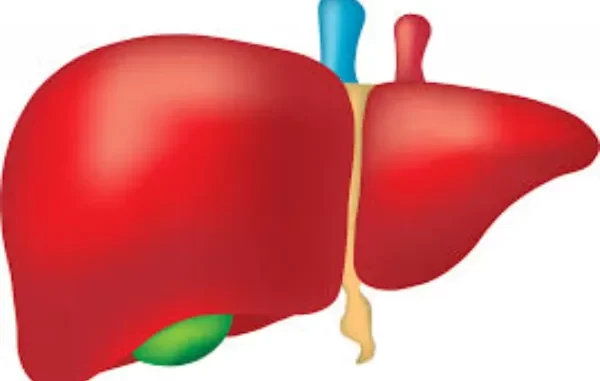
The human liver is an incredibly complex organ, performing many vital functions in the body. It is responsible for detoxification, filtration of toxins, digestion, storage and production of hormones, and regulation of blood sugar. Despite its importance, many people don’t know much about the liver. Here are some interesting facts about this amazing organ. More on Hura Watch homepage.

Unbelievable Facts About the Human Liver
The human liver is an incredibly complex and fascinating organ. It performs a variety of important functions that keep our bodies functioning properly. Here are some incredible facts about the human liver:
- The liver is the second largest organ in the human body, weighing in at about three pounds. It is located in the upper right part of the abdomen, just below the diaphragm.
- The liver is responsible for many vital functions, including digestion, metabolism, detoxification, storage of nutrients, and production of hormones.
- The liver has the ability to regenerate itself. If a portion of it is damaged, the healthy cells can regenerate to replace the damaged cells.
- The liver produces bile, which helps break down fat in the small intestine.
- The liver is a filter that cleanses the blood of toxins. It processes anything that enters the body, including alcohol, drugs, and other chemicals.
- The liver also produces proteins that help control blood clotting.
- The liver is a reservoir for vitamins and minerals, which it stores for later use.
- The liver plays an important role in the immune system, producing antibodies and other immune cells.
- The liver is the only organ in the body that can break down and eliminate drugs from the body.
- The liver is an amazing organ that is essential for life. Without it, our bodies would not be able to survive.
Fascinating Facts About the Human Liver
The human liver is one of the most vital organs in the body, providing many essential functions to keep us healthy. Here are some interesting facts about the human liver:
- The liver is the largest internal organ in the body, weighing about three pounds. It plays a critical role in digestion, metabolism, immunity, and the production of hormones and proteins.
- The liver contains two main lobes: the left lobe and the right lobe. The left lobe is larger than the right lobe.
- The liver produces bile, which helps the body digest fats and absorb vitamins.
- The liver can regenerate itself, which means it can replace damaged or lost tissue. It can also grow in size to accommodate an increase in metabolic demand.
- The liver is capable of eliminating toxins from the body. It is responsible for breaking down drugs and alcohol, as well as other potentially harmful substances.
- The liver can store certain vitamins and minerals, such as vitamin A, D, E, K, and B.
- The liver plays an important role in blood clotting and helps to regulate blood sugar levels.
The liver is the only organ in the body that can regenerate itself.
The liver is the only organ in the body that performs so many essential functions.
Diseases of the liver can affect many different parts of the body and can be life-threatening. Common liver diseases include hepatitis, cirrhosis, fatty liver disease, and cancer.
These facts demonstrate the importance of taking care of our livers and maintaining a healthy lifestyle to keep the organ functioning properly. Taking steps to prevent diseases of the liver is essential for overall health and well-being.
Amazing Facts About the Human Liver’s Role in Health
The human liver is an essential organ in the body and plays a critical role in maintaining overall health and wellbeing. It is the largest internal organ and is responsible for a multitude of vital functions, including filtering harmful substances from the blood, metabolizing drugs and toxins, storing essential vitamins and minerals, and producing bile to help the body digest food.
The liver is also responsible for producing proteins that are essential for blood clotting and for creating energy sources for the body. In addition, the liver helps to break down fats, carbohydrates, and proteins, and is involved in the metabolism of hormones and drugs.
The liver is constantly exposed to a variety of toxins and pollutants, and as such, it is important to protect it from damage. There are a number of lifestyle changes that can help to keep the liver healthy, including avoiding excessive alcohol consumption, eating a balanced diet, and exercising regularly. It is also important to get regular medical checkups to monitor liver health.
Certain medical conditions can lead to liver damage and should be monitored closely. These conditions include hepatitis B and C, cirrhosis, fatty liver, biliary obstruction, and other inherited disorders. It is important to be aware of the risks of liver damage and to seek medical treatment promptly if symptoms arise.
The liver plays an essential role in human health and wellbeing, and it is important to take steps to maintain its health. By following a healthy lifestyle and monitoring liver health closely, individuals can reduce their risk of liver damage and ensure that their liver remains healthy and functioning properly.
Leave a Reply